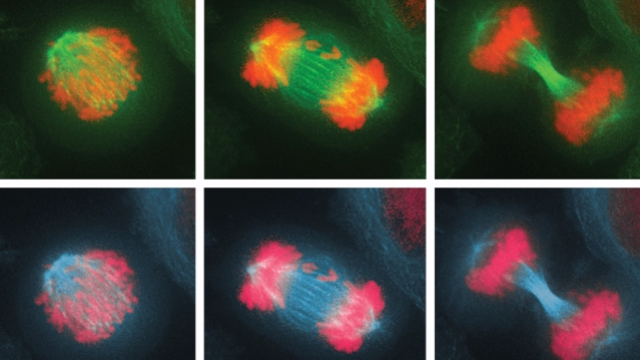현재 위치:홈 > 뉴스현황 > Press Events > New Immune System Fi...
저자: 업로드:2017-06-22 조회수:
Most living cells have a defined number of chromosomes: Human cells, for example, have 23 pairs. As cells divide, they can make errors that lead to a gain or loss of chromosomes, which is usually very harmful.
Biologists at the Massachusetts Institute of Technology (MIT) say they have identified a mechanism that the immune system uses to eliminate these genetically imbalanced cells from the body. Almost immediately after gaining or losing chromosomes, cells send out signals that recruit natural killer cells, which destroy the abnormal cells.

The findings raise the possibility of harnessing this system to kill cancer cells, which nearly always have too many or too few chromosomes, according to the investigators.
"If we can reactivate this immune recognition system, that would be a really good way of getting rid of cancer cells," says Angelika Amon, Ph.D., the Kathleen and Curtis Marble Professor in Cancer Research in MIT's department of biology, a member of the Koch Institute for Integrative Cancer Research, and the senior author of the study ("Chromosome Mis-Segregation Generates Cell-Cycle-Arrested Cells with Complex Karyotypes That Are Eliminated by the Immune System"), which appears in Developmental Cell.
Dr. Amon's lab has been exploring an apparent paradox of aneuploidy. When normal adult cells become aneuploid, their ability to survive and proliferate is impaired. However, tumor cells, which are nearly all aneuploid, can grow uncontrollably.
"Aneuploidy is highly detrimental in most cells. However, aneuploidy is highly associated with cancer, which is characterized by upregulated growth. So, a very important question is: If aneuploidy hampers cell proliferation, why are the vast majority of tumors aneuploid," asks Stefano Santaguida, Ph.D., a research scientist at the Koch Institute, and lead author of the paper.
To try to answer that question, the team wanted to find out more about how aneuploidy affects cells. Over the past few years, Drs. Santaguida and Amon have been studying what happens to cells immediately after they experience a mis-segregation of chromosomes, leading to imbalanced daughter cells.
In the new study, they investigated the effects of this imbalance on the cell division cycle by interfering with the process of proper chromosome attachment to the cell spindle. This interference leads some chromosomes to lag behind and get shuffled into the two daughter c